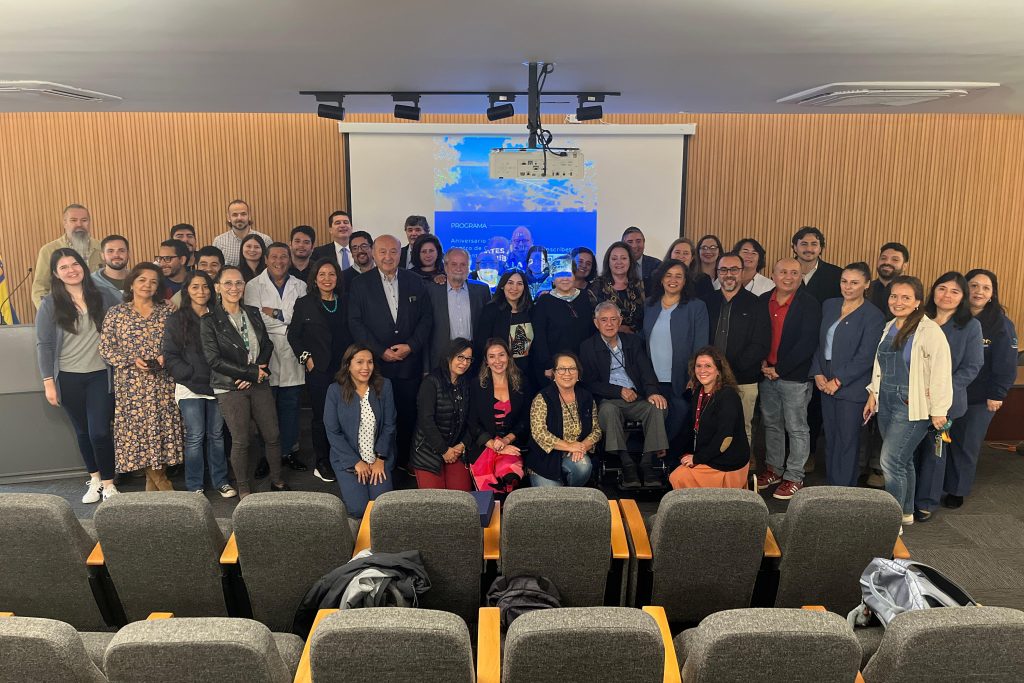It has been 35 years since the Environmental Science Center EULA Chile of the Universidad de Concepción began its journey as a benchmark in environmental research. During these more than three decades, it has been a key space for the development of fundamental studies in sustainability and training of specialists, leaving a mark in the Biobío Region and throughout the country.
For the center’s director, Dr. Ricardo Barra, this anniversary is not only cause for celebration, but also for reflection on what lies ahead: “We have faced great environmental challenges and contributed to their solution, not only at the regional level, but also at the national and global levels. But much remains to be done. We look ahead with a commitment to address urgent issues such as climate change, biodiversity loss and pollution.”
A key ally for the Biobío Region
Since its inception, the EULA Center has worked hand in hand with various stakeholders to protect the environment. The Biobío Seremi of the Environment, Pablo Pinto, recognizes this effort and highlights it as a fundamental pillar for the Region: “They have worked together with the community, institutions and social organizations, promoting the care of our ecosystems and water resources. Their contribution has been key to face the climate crisis”.
This commitment to the territory has been reflected in emblematic projects such as watershed management in the Alto Biobío, where professionals from different disciplines came together to address water management in an integrated manner. “The environment cannot be studied from a single perspective. It is necessary to open the mind and collaborate,” commented IMDEA Agua academic and researcher Marco Vighi, who has been part of this evolution. In his keynote lecture, Dr. Vighi addressed the protection of the ecological quality of surface waters.
Links that transcend borders
The influence of the EULA Center is not limited to Chile. Researchers from different parts of the world have found in it a space for collaboration and learning. Dr. Ethel Eljarrat, who has worked with the center for more than 15 years, describes it as a reference in environmental research: “It is a wonderful project, and the most important thing is that it continues to grow with new generations of students and researchers”. In her lecture, the also director of the Institute of Environmental Diagnosis and Water Studies (IDAEA-CSIC) addressed the problem of plastic pollution in aquatic ecosystems and the need to transmit this knowledge to society and policy makers.
Dr. Kelly Munkittrick, an academic at the University of Calgary and collaborator of the EULA since 2001, highlighted the impact it has had on the training of professionals. “I have worked in more than 30 countries, but my strongest collaboration has been with the EULA Center. Many of their students have traveled to Canada to work with me after finishing here.” In his lecture, the researcher addressed integrated water management and the challenges of climate change, highlighting the importance of collaboration between scientists, communities and industries.
Gender and science: breaking barriers
As part of the anniversary, two meetings were held. The first one linked social organizations, the private and public world with academia, with the participation of the El Árbol and Pongo Foundations, the Cañete Environmental Commission, the Biobío Environmental Seremi, among others. The meeting was moderated by the director of EULA, Ricardo Barra, and opened the dialogue towards the environmental challenges of the region today.
A meeting with a gender perspective was also organized, a space to reflect on the challenges faced by women in the environmental sciences. Yenifer González, PhD student in Environmental Sciences at UdeC and researcher at the CRHIAM Center, highlighted the importance of opening more leadership spaces for women researchers: “We still need to see more women in senior management positions, such as deanship authorities, directors of the center, as well as in the rectorship of the Universidad de Concepción”.
Marcela Salgado, an academic from the Faculty of Environmental Sciences and organizer of the event, reinforced this idea: “Gender gaps in science are still a reality. It is essential to continue questioning how to reduce them and generate more opportunities for all”.
Looking to the future
Beyond academia, the EULA Center has also contributed to the debate on sustainable development in Chile. Carola Venegas, energy expert and Environment and Communities Manager of Conexión Kimal Lo Aguirre, reinforces the need to incorporate new technologies for better environmental performance: “Replacing polluting energy consumption with zero-emission electricity requires strengthening the networks, in addition to the growing inclusion of batteries, green hydrogen, and other innovations”.
After 35 years of experience, the EULA Chile Center continues to look to the future with the same conviction with which it was born: to contribute to knowledge, the training of specialists and the search for sustainable solutions to the great environmental challenges of the country and the world.
